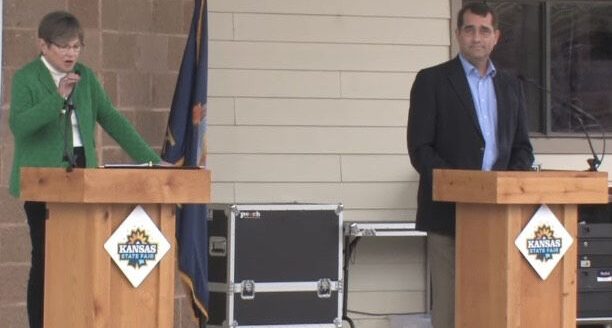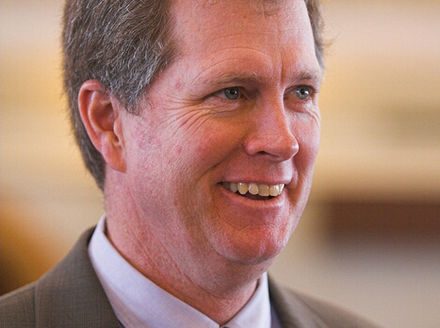HHS appoints former Kansas Gov. Jeff Colyer chair of the National Advisory Committee on Rural Health and Human Services
On Feb. 27 U.S. Health and Human Services Secretary Alex Azar announced the appointment of former Kansas Gov. Jeff Colyer to serve as chair of the National Advisory Committee on Rural Health and Human Services.
Colyer, a surgeon by training, will be the fifth chair in the 32-year history of the committee and the second chair from Kansas after Nancy Kassebaum Baker, who served during the Bush administration. Colyer’s appointment coincides with a series of actions the secretary has taken to bring more attention to rural health.
In late 2018, Azar created the HHS Rural Task Force to streamline efforts across HHS to be more focused on developing policy and program changes needed to transform health care in rural America.
“Improving healthcare in rural America is one of President Trump’s most important healthcare priorities, and addressing our rural health crisis is one of the key impactable health challenges the President has identified,” said Secretary Alex Azar. “President Trump’s administration has already put more attention on this challenge than it has seen for years, and we are delighted to welcome someone of Gov. Colyer’s stature and experience to chair this Committee. The Committee will play an integral role in our ambitious ongoing efforts at HHS to transform rural healthcare, and Gov. Colyer will work closely with me, Deputy Secretary Hargan, and the HHS Rural Health Task Force.”
The committee was established by statute in 1987 to advise the secretary on access to, delivery of, and financing for health care and human services in rural areas. The committee produces policy briefs and reports on key rural issues, along with recommendations to address the challenges. The committee comprises 21 members, including the chair, who represent the diversity of health and human service issues in rural America. In addition, the members represent an appropriate geographic representative mix from across the country, including the chair, selected by the secretary from authorities knowledgeable in the fields of delivery, financing, research, development and administration of health care and human services in rural areas.
Members provide an array of expertise, including the range of rural-focused health programs under the purview of the secretary, and are knowledgeable in the fields of rural human and social services. Examples include issues related to transportation, children and family services, social work, services for the elderly and rural economic development.
“As a Kansas doctor and a former governor, I know how important good medical care is to our rural communities,” said Colyer. “President Trump’s and Secretary Azar’s insistence on improving rural health is a major step forward, and I want to thank the president and Secretary Azar for their push to improve the lives of rural Americans.”
Jeff Colyer, M.D. of Overland Park, Kansas, finished his gubernatorial term in 2019. He is a fifth-generation Kansan from Hays who practices craniofacial and reconstructive surgery. In addition to his medical practice, he is known for volunteering with International Medical Corps in war and conflict zones around the world including Rwanda, Afghanistan, Iraq, South Sudan and Libya.
Before becoming hovernor, Colyer served in the House and Senate and was the longest serving lieutenant governor in Kansas history. He led Kansas’s Medicaid transformation into the first fully integrated managed care program in the United States and was noted for improving health outcomes, cutting waiting lists and saving over $2 billion through better care. As governor he funded schools, saw more Kansans working than ever before, and left a $750 million budget surplus. He oversaw the first credit outlook upgrade in Kansas in more than a decade. He also emphasized improving rural health programs.
In addition to his service to the National Advisory Committee on Rural Health and Human Services, Colyer also works with businesses in artificial intelligence, technology and healthcare. He was a White House Fellow to Presidents Reagan and Bush. He has degrees from Georgetown University (economics/premed), Cambridge University (Master’s in international relations), and the Kansas University School of Medicine with residency training in surgery and trauma, plastic surgery, and pediatric/craniofacial surgery. He and his wife, Ruth, have three daughters.

